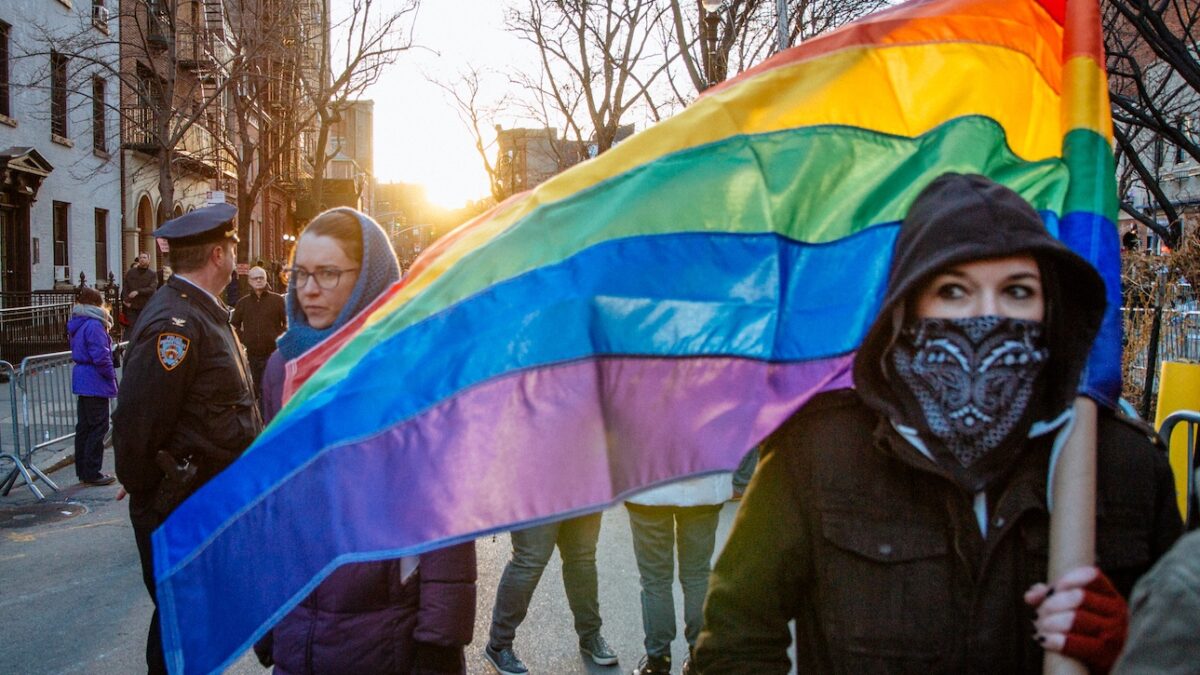In an environment of endless protest from the left, trans activists have moved from public disruption to simply disabling systems they do not like. On May 1, 2024, Utah launched a reporting form to enforce H.B. 257, a law signed by Gov. Spencer Cox in January that protects sex-designated spaces such as restrooms or locker rooms from intrusions by members of the opposite sex. The state auditor is required to investigate these reports, but within a week, the office received around 10,000 false complaints from trans activists attempting to overwhelm the system to make reporting and enforcement impossible.
Prominent trans activist Erin Reed argued, “If there are 4,000, 5,000, 6,000 form responses that are entered in, it’s going to be much harder for the auditor’s office to sift through every one of them and find the one legitimate trans person who was caught using a bathroom.” The enforcement, which only addresses the failure of government entities enforcing the new law, includes reporting the failure of government entities to contact law enforcement when a criminal complaint is filed (for instance, a complaint of men caught spying on women or girls in restrooms).
Utah Auditor John Dougall noted that while many complaints were easy to screen (e.g., those listing him in the complaint), others “appear credible at first glance and take much longer to filter out. His staff has spent the last week sorting through thousands of well-crafted complaints citing fake names or locations.” Activists have engaged in this behavior in other states as well, targeting enforcement of laws preventing teachers from discussing explicit sexual information with students, for example.
A tip line in Missouri was set up for “those who have experienced harm from gender transition interventions or witnessed troubling practices at transition clinics in Missouri.” The line had to be taken down after activists overwhelmed it with false reports, making it far more difficult for legitimate concerns of abuse and regulatory or ethical violations to be reported for investigation.
Activists assert that the Utah law and the online report form “give people license to question anyone’s gender in community spaces, which … could even affect people who are not trans.” No actual trans-identifying person would be negatively affected by this reporting. The reporting form is to ensure government entities comply with enforcement rules, which require clearly designated male and female spaces as well as single occupancy spaces. When a crime is reported, entities must report it to law enforcement.
Schools must “provide equal quality, opportunity, or availability and scheduling of facilities, programs, and events for both sexes.” Failure to follow these guidelines may result in fines if the investigation proves there are valid complaints. A trans-identifying person is not going to be arrested or dragged out of the restroom when a complaint is filed on the website.
In fact, the law really wouldn’t negatively affect “transitioned” individuals at all considering it is designed for reporting concerns around enforcement. As has been the concern since the beginning, conservatives want to make sure a woman can report an obvious man in the women’s restroom as a threat. LGBT activists seem to want women who voice this legitimate concern publicly shamed as bigots and denied the option to report such abuses at all.
Critics of laws that clearly define sex-segregated spaces insist such laws “encourage harassment of trans adults at work and while they’re shopping and eating out — and even harassment of cisgender people, or those whose gender identity matches the sex they were assigned at birth.” Even when the law or policy is only applied in schools to ensure the safety of students.
Kansas State Rep. Susan Ruiz, a Democrat and lesbian, argues, “By men, I get harassed for going into a women’s restroom because people think that — the way I look, the way I dress, the way my hair is — that I’m a man.” She insists, “This is going to just open up the doors for that.” But there is no evidence to support this complaint and, with activists filing mass protest complaints, no way to determine if any trans-identifying people are facing negative consequences.
In contrast, we know that men are abusing these policies to specifically target women and girls for sexual harassment or lewd behavior, and spying on women and filming them. Left-wing activist groups like the ACLU of Utah declare, “This bill perpetuates discrimination, needlessly imposes barriers to the everyday needs of people in Utah, and risks harmful and discriminatory enforcement against transgender, non-binary, and gender non-conforming people.”
However, in practice, it is everyday women and girls who face the real consequences when predator men exploit transgender bathroom and changing room policies.
LGBT activists have convinced students and transgender-identifying individuals they are being oppressed and targeted when common sense laws are put into place that protect them from predators. For example, a fifth-grade girl who identifies as “he/they” argued that even when single-occupancy restrooms are provided, it isn’t good enough. She complained that such accommodations make her feel isolated. “It hurts me,” the child said. “I might be uncomfortable going into that restroom, so I want to go into a different one, but the law doesn’t say that I can.”
There is no reason for a fifth-grade girl to be in the boys’ restroom unattended simply because she decided she feels more comfortable or wants some form of public validation. Her safety is at risk, and that is what it all comes down to. Transgender-identifying individuals are not being targeted, but these demands put women and girls, and the transgender-identifying individuals themselves, in very real danger.
Thus these bullying techniques that attempt to shut down the enforcement of laws the left does not like put real people in harm’s way. LGBT activists, but especially trans activists, are working to make the reporting of legitimate violations of laws protecting women and children nearly impossible because they imagine these laws somehow unfairly target them.
They believe that if they don’t like what a law says (or, typically, what they think it says), they can not only refuse to follow it but also prevent anyone else from following it. Without legal consequences, Republican efforts to protect women and girls — and children in general — from sexually inappropriate environments will simply be unenforceable.









